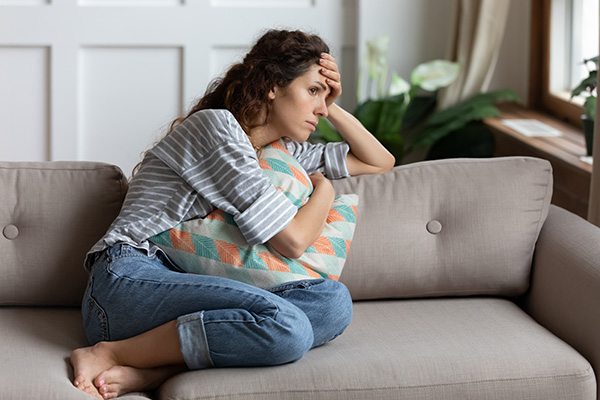Disclosure :: This post is written by Dr. Jeremy Knott and sponsored by Our Lady of Lourdes. Seasonal Affective Disorder impacts 15 percent of Americans. Here are some tips to help you break the cycle and feel more like you during the winter.
Don’t Feel SAD This Winter
 The winter months are upon us – cooler temperatures, holiday decorations, people scurrying to get the perfect presents to show how much they truly care. Like many things this year, these winter months are nothing like we’ve ever experienced.
The winter months are upon us – cooler temperatures, holiday decorations, people scurrying to get the perfect presents to show how much they truly care. Like many things this year, these winter months are nothing like we’ve ever experienced.
Just about any other season in Acadiana features a welcome environment to lace up the hiking boots, slip on the cycling shorts and fill the water bottle to tackle an open trail. Winter months, however, often summon forth comfy slippers, soft pajamas, a warm cup of cocoa and holiday movie marathons on the couch. Along with them, for about 15 percent of Americans ages 15 and up, comes the “winter blues,” or seasonal affective disorder (SAD).
The acronym just about sums it up. SAD looks and feels a lot like depression with the minimal energy, lack of interest, feeling hopeless or worthless, difficulty concentrating, irritability, trouble sleeping, weight gain or weight loss and social isolation. Add the COVID-19 pandemic to that formula for 2020, and it seems like the perfect storm for SAD to blossom into full on depression.
SAD isn’t forever. Neither is COVID-19. The recently released FDA-approved COVID-19 vaccines give a welcome boost of hope that the end of the pandemic is in sight. Here are some tips to inject a little hope when you’re feeling SAD:
- Fun in the sun. Bundle up and get outside. Walk around the block or visit a local park walking trail. You don’t have to do a 5K, but get out anyway. Studies show a direct correlation between SAD and a lack of exposure to sunlight.
- Keep your routine. Establish a routine for your day – awake, eat, exercise, rest and head to bed as close to the same time each day as you can. Get a full eight hours. Consistency fosters a brighter outlook, and you may be surprised how easy it is to fall asleep and stay asleep.
- Get moving. Exercising for at least 30 minutes a day has many benefits, among them relief from depression and sad feelings.
- Talk it out. A therapist may be able to help you get to the root of why you’re feeling SAD. Also, therapists can teach you coping skills to manage seasonal depression effectively without medication.
- Stay connected. Even with social distancing and reduced travel this season it is important to maintain contact. Pick up the phone. Send someone a letter or write them a message on your favorite social media platform. Communication with others can help reduce the feeling of isolation associated with SAD.
- Talk to your primary care provider. Some may need the added boost of an antidepressant to end the SAD symptoms. Keep in mind this is not the case for everyone. Consult with your primary care provider to see if this option is right for you.
Feel more like yourself. Shake off the “winter blues” and pandemic stresses. Contact your primary care provider for more information on how you can conquer seasonal affective disorder this winter.
 Dr. Jeremy Knott is a primary care physician located in Sunset. Discover more about Dr. Knott and other providers in the growing Lourdes Physician Group network at LourdesRMC.com.
Dr. Jeremy Knott is a primary care physician located in Sunset. Discover more about Dr. Knott and other providers in the growing Lourdes Physician Group network at LourdesRMC.com.


















